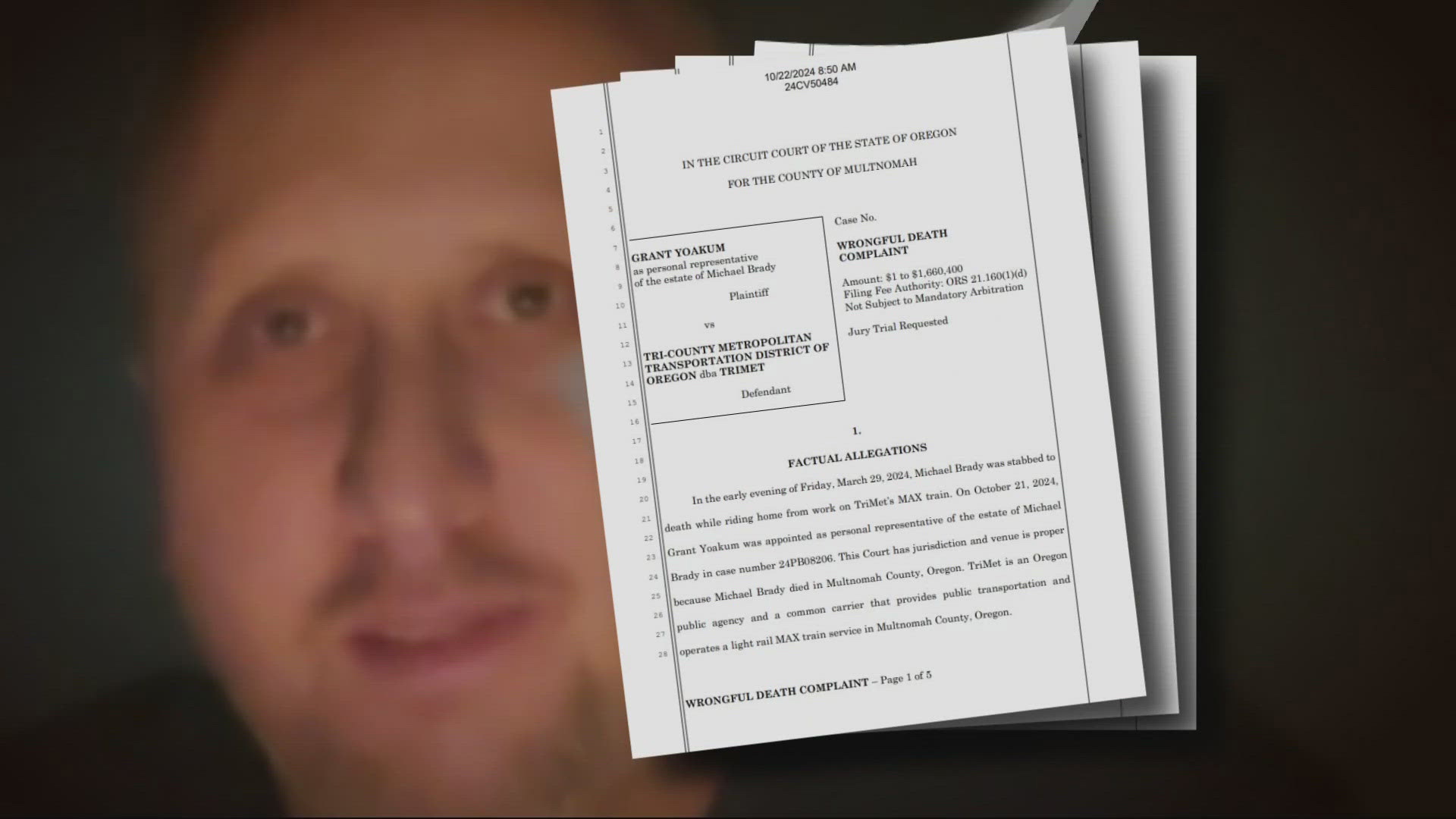PORTLAND, Ore. — The family of a man stabbed and killed on a MAX train in late March has filed a $1.6 million lawsuit against TriMet.
The wrongful death complaint filed Monday accuses TriMet of having knowledge of "dangerous individuals" who may be prone to violence using its MAX trains while also encouraging the public to ride.
On March 29, Michael Brady, 51, was stabbed to death on a MAX train at the 82nd Avenue Transit Station. Previous court records stated that it appeared to be an unprovoked attack.
Portland police arrived at the transit station just after 6 p.m. and found Brady on the platform with stab wounds to the shoulder, chest and abdomen. Police, fire crews and American Medical Response personnel attempted life-saving measures, but Brady died of his injuries.
Police found the man they believed to be responsible for the stabbing still inside the train. He was armed with a knife with what appeared to be bloodstains on his clothes, police said. Officers arrested 51-year-old Shondel Larkin, who later told police that he heard voices that made him believe Brady posed a threat to him.
Larkin has been charged with second-degree murder and unlawful use of a weapon. He is in custody at the Multnomah County jail. A jury trial has been set for mid-April based on the charges.
In the lawsuit, Brady's family accuses TriMet of failing to provide adequate warning to its passengers and public of the risk of violence and physical assaults that may occur on its trains. It also accuses TriMet of failing to provide adequate security or mobile crisis team to deter violence and safeguard passengers.
"You have two options: You either make it safe, or you warn the public that it is not safe," said Michael Fuller, the attorney with Underdog Law Office representing Brady's family. "They could've had somebody checking fare at the door. They could've had someone looking out for weapons, could've posted security that we know works as a deterrent.
"But if you cannot make the train safe, they at least need to warn the passengers — that are providing for a family or need to live to see another day — that you may not want to ride the train, or maybe you want to ride in pairs or take other safety precautions."
KGW reached out to TriMet for comment; the agency declined due to the pending litigation.

